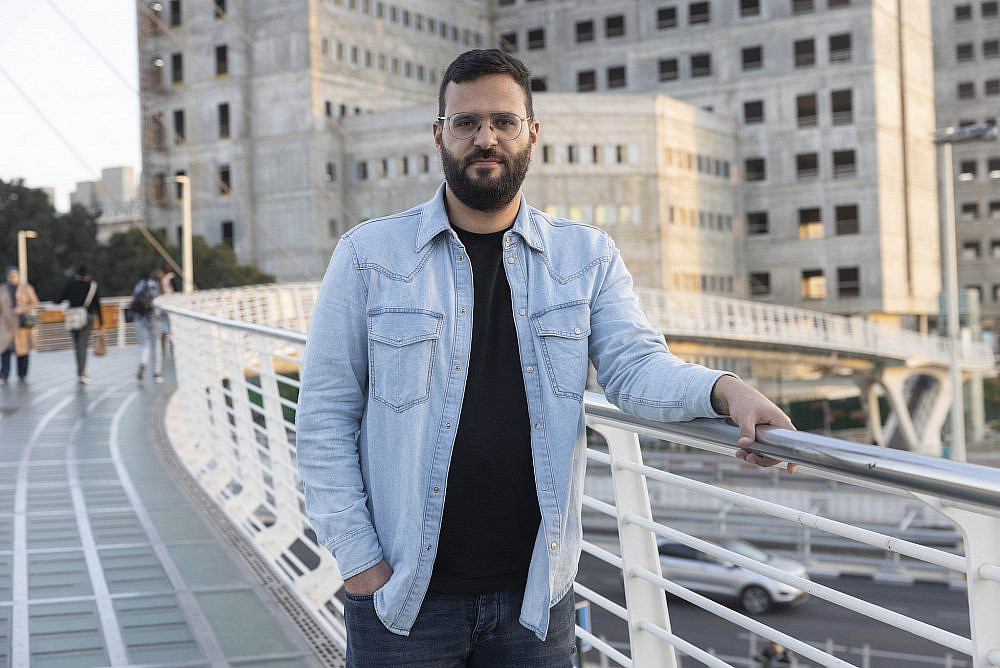The story of Dr. Ahmad Mahajna is the story of just how easy it is to build a conspiracy theory, incite a public hate campaign, and nearly get a Palestinian fired from their job in Israel today.
Mahajna’s story begins with a 16-year-old Palestinian, who on Oct. 22 reportedly carried out a stabbing attack in Jerusalem, wounding a young Jewish man. The Palestinian was shot an hour later by a police officer in the neighborhood of Sheikh Jarrah, after which he was hospitalized at Jerusalem’s Hadassah Medical Center, where Mahajna works in the Cardiothoracic Surgery Department.
On Oct. 26, Mahajna and another colleague were celebrating completing their board exams at the hospital. They brought food, including sweets, for a small staff party. At the end of the event, rather than throwing away the leftover food, a few members of the kitchen staff decided to hand it out to patients in the ward — one of whom was the 16-year-old attacker, who was under police custody in a hospital bed.
In a conversation with +972, Mahajna described how he went in to check on the detainee’s condition at the same time that a member of the hospital staff brought the teen a salad and sweets from the party. “There were two officers from the Israel Prison Service in the room, the [detainee] was handcuffed, they did not know it was forbidden [to bring the detainee food]. The staff member set down the plates and brought the table closer to his head. I asked [the detainee], ‘How are you today?’ to which he responded that he was feeling better.” Mahajna returned to work.
After a few minutes, he returned to the doctors’ lounge, where a police officer entered and began raising his voice, looking for the doctor who was present as food was given to the detainee. “I told him there was no need to yell, but I had no idea what it was all about. He left and I continued working,” Mahajna explained.
Then, in the hallway, he was stopped by a police officer who demanded to see his identification card. “When I asked him why, he said: ‘I am the sovereign, I can ask for an ID anywhere in the country.’ I told him to speak to the head of the ward and continued on.” But the police officer returned and began filming Mahajna as he was working on the computer. “I told him that it was ‘really stupid’ to film me. I was referring to the act of filming itself — I do not know this person and I don’t insult people for no reason. I later apologized if I had insulted him.” Mahajna finished his work day and returned home.
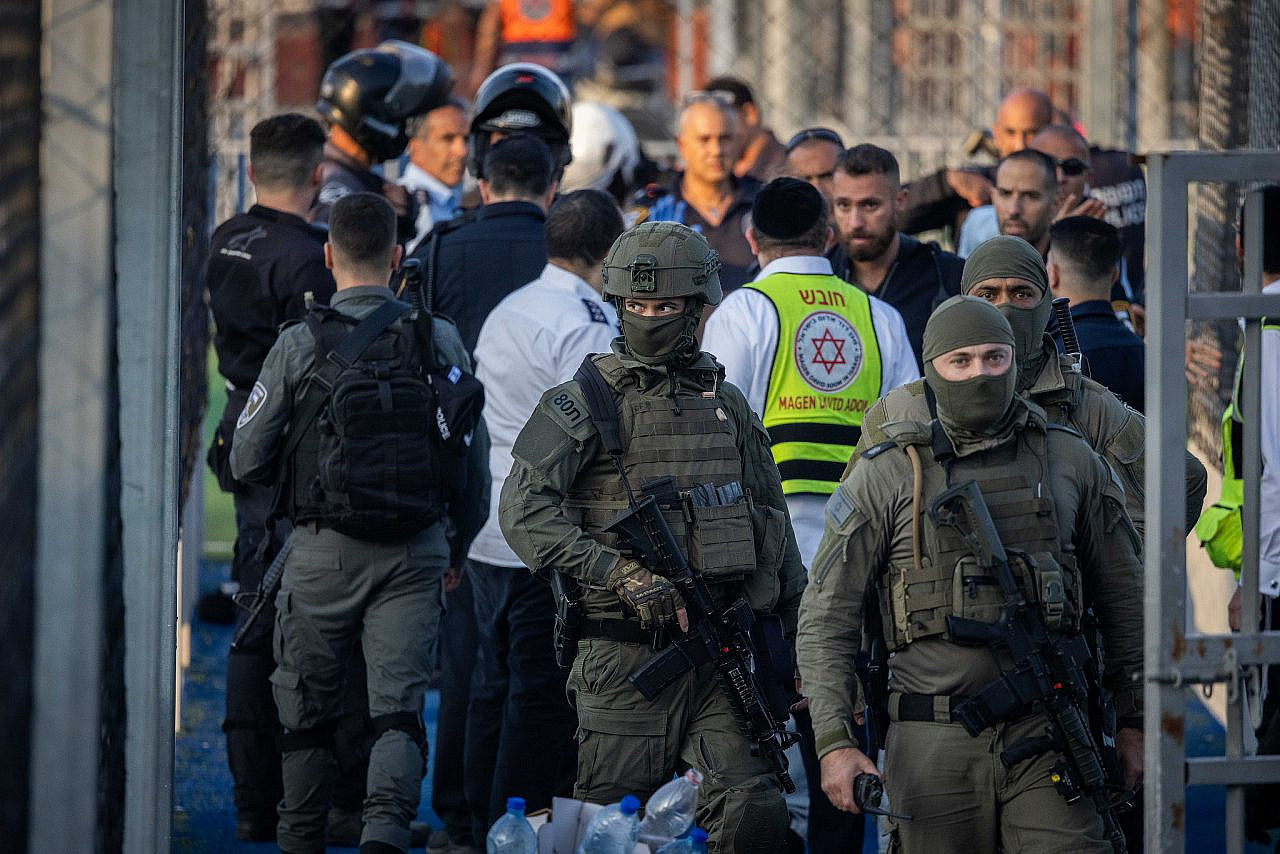
When he arrived, he received a phone call from the head of the ward informing him that he was suspended from work. “I was then summoned for a police interrogation on Nov. 17th, where I was asked who brought in the food and why. The interrogator called me a ‘terrorist who hands out knafeh.’” Mahajna also said that he was asked about his father’s activities as well about any potential relations he has with Sheikh Raed Salah, the leader of the hardline northern branch of the Islamic Movement in Israel (which was outlawed in 2015), who has been the frequent target of the authorities over the years.
A statement to +972 by Israeli police said that Mahajna was “questioned on suspicion of obstructing a police officer, he apologized for his behavior and at the end of his investigation was released. Upon completion of the investigation, the case was transferred to the prosecution for review and a final decision.”
‘Improper actions’
The story was first published in the right-wing Israel Hayom daily, which claimed that Mahajna handed out sweets and took a selfie with the detainee. The article led to a series of additional articles in the Israeli media making baseless claims against the doctor. Mahajna believes that part of the attacks on him derive from the fact that his father is a prominent Palestinian lawyer who represents several of the political prisoners who broke out of Gilboa Prison last year.
At the beginning of November, Mahajna received a letter from the hospital saying that on “Oct. 27, you along with another staff member entered the room of a patient in our ward who is under arrest and police supervision on suspicion for involvement in a terror attack and handed the detainee a plate full of dessert (knafeh), and a plate of vegetable pasta and cheeses. As you handed the plate to the detainee, you blessed him with the words ‘saha’ (health) and ‘mabrouk’ (congratulations) in Arabic.”
The letter further claimed that this was an “extremely serious incident, according to which, on its face, you as a resident doctor seriously violated the hospital’s rules and procedures.” The hospital also claimed that “during a conversation held on the morning of Oct. 26 between you and two female workers in the ward, as part of a conversation in which… you called [the detainee] a shaheed [martyr].”
Mahajna was summoned on Nov. 20th to the hospital for a hearing where he was able to provide his version of the story. A few days later, on Nov. 26, his attorneys received an additional letter in which the hospital announced that it did not accept his version of the events. “At the hearing, I provided testimonies of hospital employees who were present, but it did not interest [hospital management],” Mahajna told +972. “We showed that I did not use the word shaheed, that I did not say saha or mabrouk. It’s just untrue.”
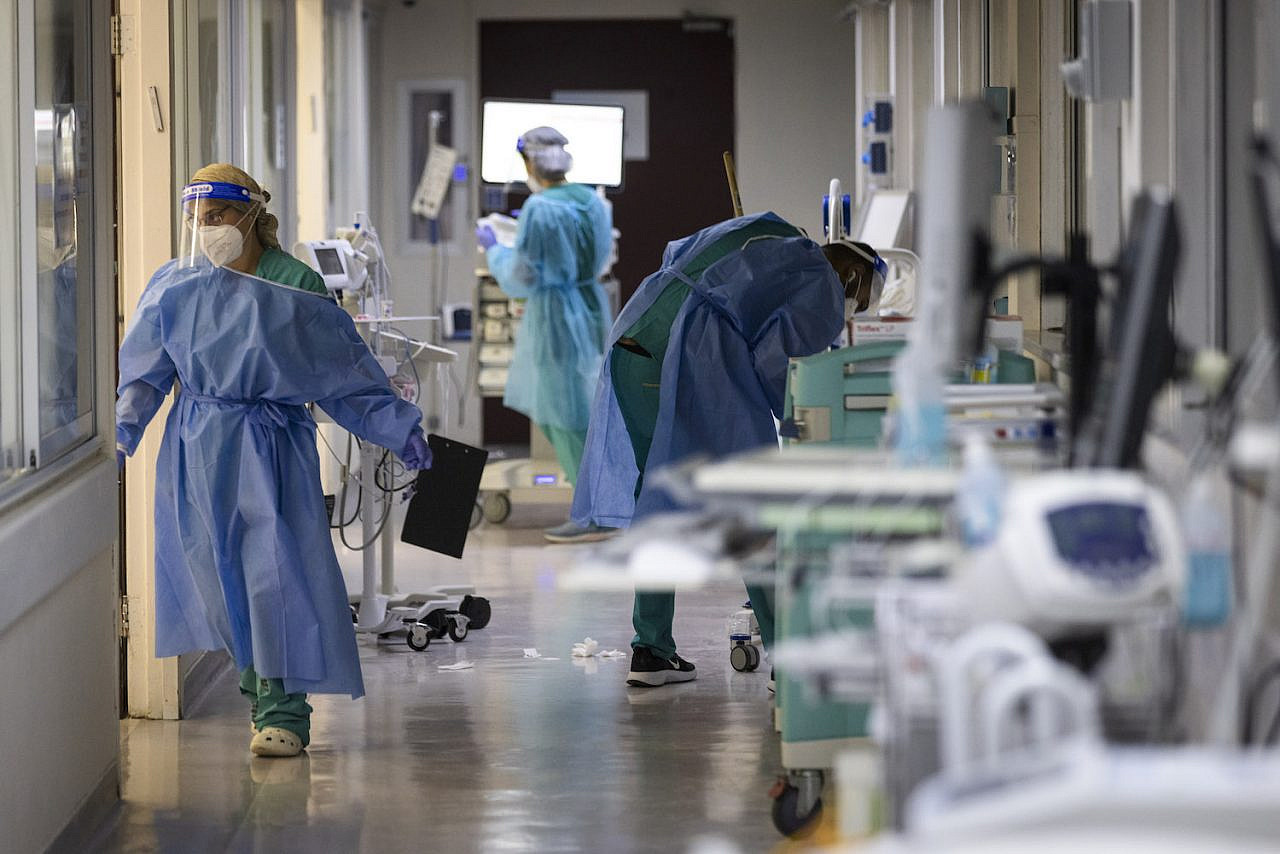
The document sent to him after the hearing read: “In his actions and statements, Dr. Mahajna fundamentally and blatantly violated his duties toward Hadassah, including the duty of trust that is at the core of the working relationship between the sides, and committed serious disciplinary violations that justify taking serious disciplinary measures. Hadassah believes that the necessary step, in light of Dr. Mahajna’s behavior, is to terminate his employment, and this is how it intends to act.”
“As someone who serves in a public hospital whose job it is to protect the safety of patients,” the letter continued, “Dr. Mahajna was not allowed to take improper actions or make improper statements, which have a real potential to cause a flare-up and serious harm to public order. Nor can it be ignored that such actions and statements by Dr. Mahjana seriously damage Hadassah, its status and reputation, particularly against the backdrop of the current security situation.”
“They dragged my name through the mud, I received threats from a lot of right-wing people that I do not know,” Mahajna explained. “I bit my lip, but when I received the letter from the hospital, I said enough is enough.” In the days following his suspension, Mahajna told +972 that he is “suffering and very sad,” and is surprised at the hospital management’s behavior. “Instead of supporting me, they suspended me. I worked for years on my career, I was on the dean’s list, [and] as part of my residency I am taking part in research. Now they want to fire me because of things I didn’t do.”
The truth prevails
From there, however, the plot begins to twist. According to testimonies from additional hospital employees that were gathered by Mahajna’s attorney and provided during his hearing, the doctor was speaking the truth. The same Israel Hayom writer who first published the story wrote a follow-up including those testimonies.
Suhad Hassan Sbeitan, who works in the hospital kitchen and hands out food to patients in the Cardiothoracic Surgery Department, wrote in her testimony that she is the one who handed the food to the detainee. Asma Awad, who also works in the department, wrote in hers that she provided the cakes alongside Sbeitan, and that Mahajna never asked her to give the detainee food.
“After the party ended, there was a lot of food left over. The rest of the nursing staff, the cleaners, and I told [the doctors] that we wanted to distribute the food to the other patients, because it would be a shame to throw it away. They both agreed. Dr. Ahmad [Mahajna] was in room number 7 when I entered with two plates of food. He examined the patient, and I heard him ask in Arabic, ‘How are you today?’ He didn’t say anything else to him.”
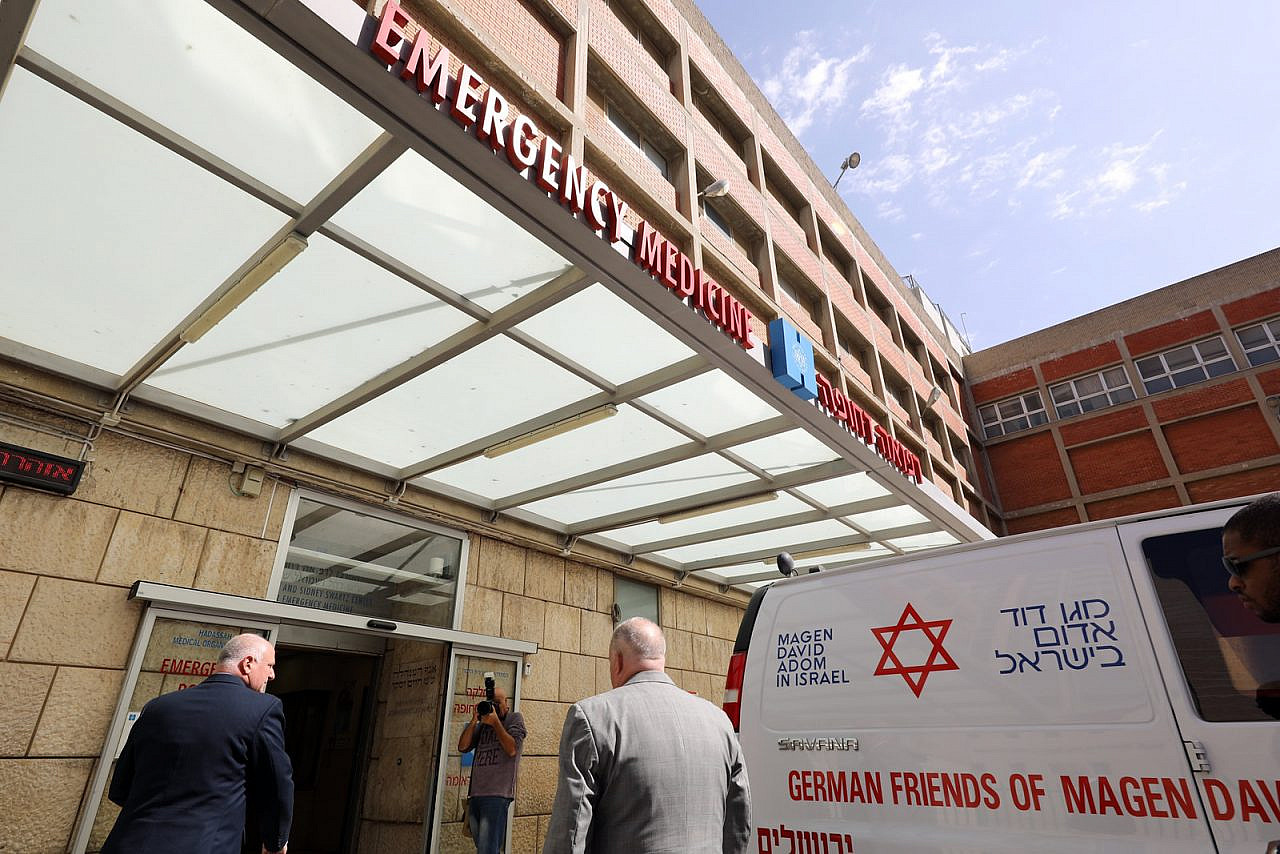
Suddenly, other journalists began publishing clarifications to the story, including Channel 12’s Inbar Twizer, who announced on Twitter that she had removed the original news item and published the doctor’s version instead. Other news sites left their original reports untouched.
According to Mahajna, Shai Glick — a right-wing activist who for years has been fighting against people, organizations, and associations that he deems “supporters of terrorism” by sending letters to the authorities to cut their government funding — began a public campaign against the doctor, which included filing a complaint with both the Ministry of Health and Hadassah to demand his termination, after reading the reports in Israel Hayom.
The lawyer managed to convince Glick, after providing him with documents, that the allegations against the doctor were not justified. Glick then published a letter retracting his complaints against Mahajna, in which he claimed that “upon hearing the doctor’s version… I examined it in depth. I spoke to the doctor’s lawyer and he answered all my questions. He then sent me signed affidavits from all the doctors and employees, who stated that [Mahajna] was not the one who gave the cakes to the terrorist and that he is a dedicated doctor who does not support terrorism at all. Dr. Mahajna treated him just like any other person. Dr. Mahajna is an outstanding doctor, and I demand he be returned to work as soon as possible.”
Mahajna told +972 that his lawyer and Glick reached an agreement according to which, following the doctor’s reinstatement, Mahajne would publish a post online stating that he is against harming innocent people. In the meantime, Hadassah has not retracted its accusations against Mahajna, but rather invited him to a mediation session on Monday in order to clarify his conduct in a professional manner. “The procedure is secret, but we hope for the best,” Mahajna told +972 earlier this week.
In an email response to a query from Local Call, Glick said that he did not receive any inquiries about Mahajna from hospital staff before he submitted the complaints to the hospital and the Health Ministry, but that after he filed them, he did receive various inquiries from “several parties.” Glick explained that he retracted his complaint and published a clarification after realizing that the various articles published that claimed the doctor called the detainee a “martyr” were “100 percent lies.” Glick told +972 that he realized that the story may have included “more lies,” so he personally spoke to Mahajna’s lawyer and asked to see the materials that had been gathered. According to Glick, he told the lawyer: “If I find out I was wrong, I will be the first to apologize.”
“We initiated contact with [Mahajna’s] lawyer,” Glick’s response continued. “I did it 100 percent out of honesty and fairness and with the understanding that if I’m wrong I will make a correction. Regarding the publication of a clarification, it is important for me to emphasize that the purpose is two-fold: because it is important to condemn terrorism, and it is important for them to see that the same person who is a doctor who chooses to save lives also condemns all terrorism. This is obvious and there is no reason why he should not publish it; on the contrary, it is a great source of pride for him to show that he is not following the path of his family members, but rather the opposite.
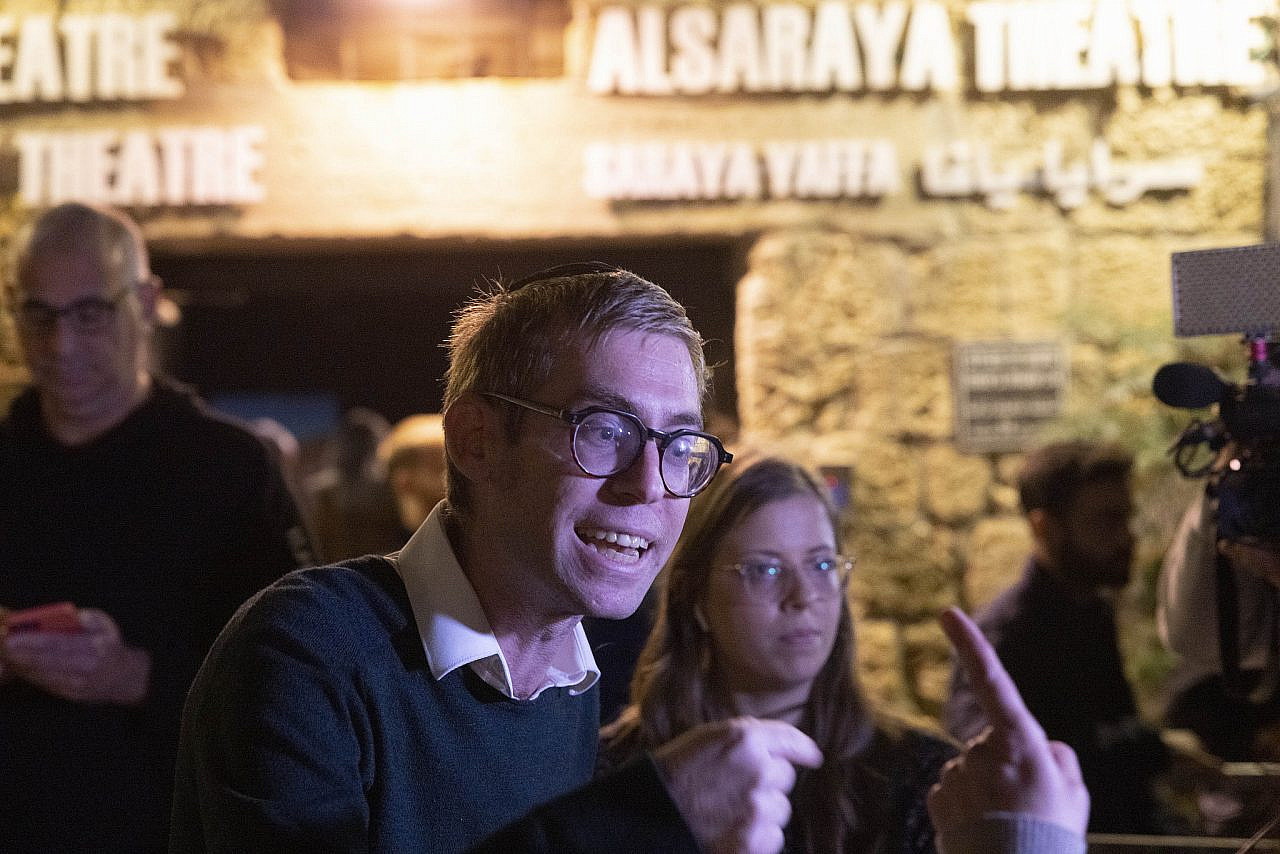
“No less important is that those who suspect [Mahajna of wrongdoing] must show the public that he is innocent,” the response went on. “I made sure that his name would be cleared 100 percent. I deserve huge commendations. I hope that this act will strengthen the real coexistence and the fight against terrorism that I work toward every day and every hour. It is further important to note that the doctor respects me and even gave an interview last week in which he spoke positively about me, so all those who are trying to start trouble can look elsewhere.”
“I relied on all these sites, as I said, none of them apologized. I’m the only one who did!!!!!!!!!!!!!!!!!!!!!!!!!!!!!!!!!!!!!!!!!!!!!” Glick concluded.
Hadassah Medical Center did not respond to multiple requests for comment.
‘Every Palestinian employee is a suspect’
Hadas Ziv, the head of activities and ethics at Physicians for Human Rights-Israel, which supported Mahajna from the beginning of the affair, told +972: “The racist abuse of Dr. Ahmad Mahajna exposes the intolerable gaps between how the health system presents itself — as an island of sanity and coexistence — and a reality where every Palestinian employee is a constant suspect. What would easily fly under the radar for a Jewish staff member turns into a witch hunt when it comes to a Palestinian. And even if he did everything that Hadassah claims, that is not grounds for dismissal.”
Ziv also noted the lack of solidarity by Jewish doctors with Mahajna. “No less serious is the fact that as soon as a Palestinian colleague is attacked, the painful cracks in the solidarity of co-workers are revealed. Some suspect that maybe he did something after all, while others simply fear that they will be labeled as ‘leftists’ just because they dared to stand by him. When it comes from the medical community’s leadership, it permeates downward and creates an organizational culture in which every Palestinian on the team knows very well that it is better to remain silent.”
“In order to bravely face who we really are, the healthcare teams should part with the illusion that upon entering the hospital we abandon all our spiritual and cultural baggage. If the health system wants to become an ideal of equality, the first step is to recognize the structural oppression and racism that exists within it,” Ziv said.
And despite the fact that the truth seems to have prevailed, Mahajna still faces danger, saying he was attacked earlier this week by two young men at a Shawarma stand who called him a “terrorist doctor.” His message to others who are under attack is that “one should fight, not give up, because the truth should win out.”
Despite what he has been through, Mahajna still hopes this affair comes to an end and he can return to work at Hadassah as soon as possible. But, he says, he won’t do that at any cost. “The hospital should apologize, they harmed my good name. So far they haven’t even said, ‘We were wrong.’”
Correction: An initial version of this article stated that as part of the agreement with the hospital, Shai Glick would publish a post online stating that he is against harming innocent people. The article has been updated to reflect the fact that Ahmad Mahajna would be the one to publish a post stating that he is against harming innocents.


